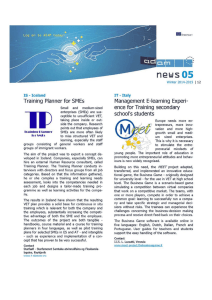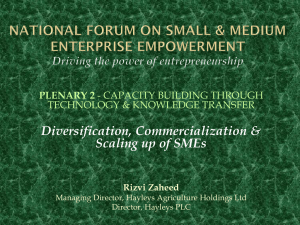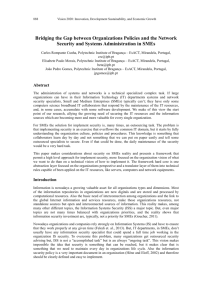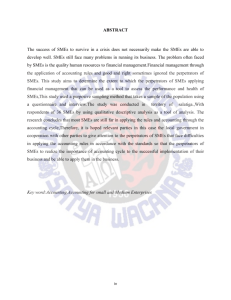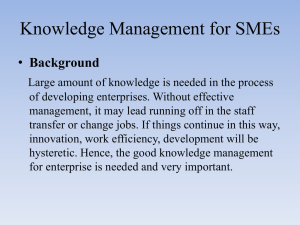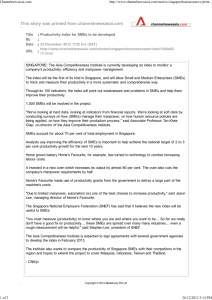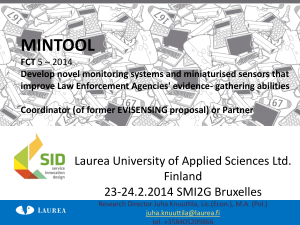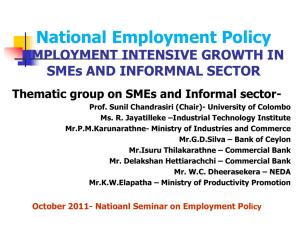Business Management
advertisement
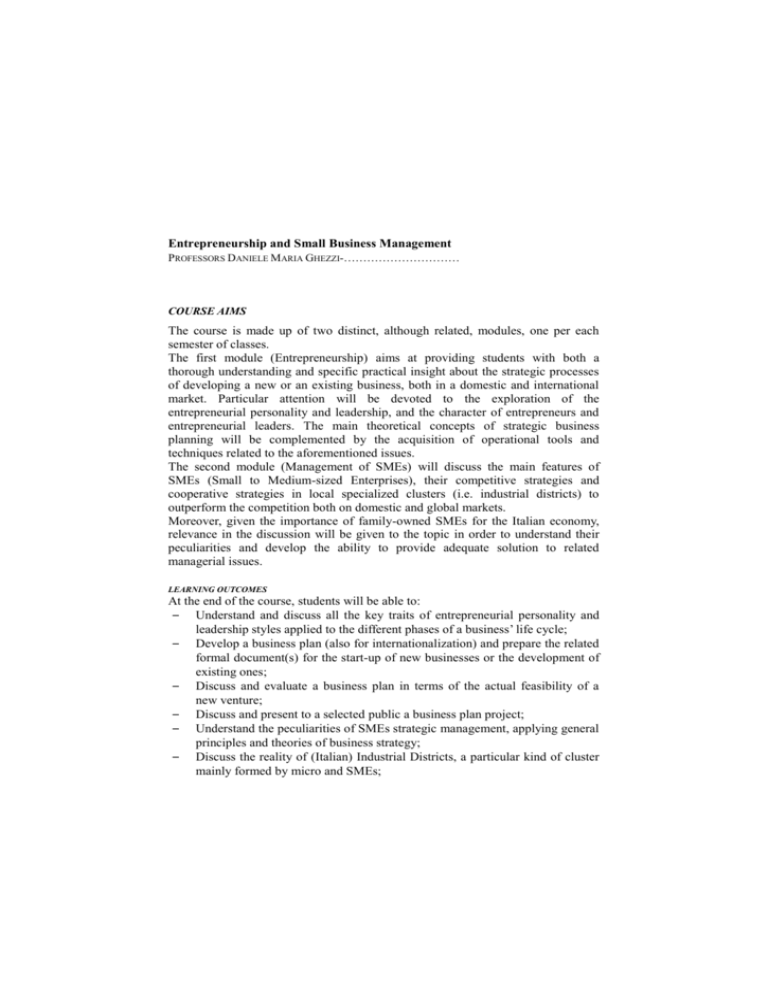
Entrepreneurship and Small Business Management PROFESSORS DANIELE MARIA GHEZZI-………………………… COURSE AIMS The course is made up of two distinct, although related, modules, one per each semester of classes. The first module (Entrepreneurship) aims at providing students with both a thorough understanding and specific practical insight about the strategic processes of developing a new or an existing business, both in a domestic and international market. Particular attention will be devoted to the exploration of the entrepreneurial personality and leadership, and the character of entrepreneurs and entrepreneurial leaders. The main theoretical concepts of strategic business planning will be complemented by the acquisition of operational tools and techniques related to the aforementioned issues. The second module (Management of SMEs) will discuss the main features of SMEs (Small to Medium-sized Enterprises), their competitive strategies and cooperative strategies in local specialized clusters (i.e. industrial districts) to outperform the competition both on domestic and global markets. Moreover, given the importance of family-owned SMEs for the Italian economy, relevance in the discussion will be given to the topic in order to understand their peculiarities and develop the ability to provide adequate solution to related managerial issues. LEARNING OUTCOMES At the end of the course, students will be able to: – Understand and discuss all the key traits of entrepreneurial personality and leadership styles applied to the different phases of a business’ life cycle; – Develop a business plan (also for internationalization) and prepare the related formal document(s) for the start-up of new businesses or the development of existing ones; – Discuss and evaluate a business plan in terms of the actual feasibility of a new venture; – Discuss and present to a selected public a business plan project; – Understand the peculiarities of SMEs strategic management, applying general principles and theories of business strategy; – Discuss the reality of (Italian) Industrial Districts, a particular kind of cluster mainly formed by micro and SMEs; – Explore the relationship between enterprise and family and their frequent overlapping in SMEs particularly in the Italian context. COURSE CONTENT Module I: Entrepreneurship - Entrepreneurship and leadership - Formulation of a business plan: structure and contents. - Collecting and organizing data for your business planning. - Evaluation criteria for business planning. - Business Planning for internationalization. - Strategies and techniques for searching for investors. - Financing a new venture (“Business Angels and co.”). Module II: Small Business Management - Defining SMEs (quantitative and qualitative approach). - The role of SMEs in the Italian, European and global economy. - Industrial Clusters and Districts of SMEs. - Business strategy in SME: process and contents. - The strategic process of SMEs internationalization. - Managing the development processes of SMEs. - (Small) family businesses. READING LIST Module I: J. TIMMONS-S. SPINELLI, New Venture Creation, MC GRAW HILL, latest editions (6th onwards). T. KUBR-H. MARCHESI-D. ILLAR–H. KEINHUIS, Starting up, achieving success with professional business planning, McKinsey & Company, Inc. Switzerland, 1998. To be downloaded at: http://www.scribd.com/doc/4505824/Mckinsey-Starting-Up-Business-Planning-Manual. Module II: S. CARTER-D. JONES EVANS, Enterprise and Small Business, FT Prentice Hall, Harlow, England, 2006. The chapters to be studied for the exam will be indicated. Same for not attending students. Further reading materials (books, papers, case studies etc.) will be provided by the professor during the course. TEACHING METHOD The course will be taught through different methods combined: lectures, discussions of case studies, presentations by businesspeople and in-class and project works (both at individual and group level). ASSESSMENT METHOD For both modules, students attending class on a regular basis take a written exam and will be required to work on individual/group projects according to the instructions supplied by the professor in class. Student’s in-class participation will also be taken into account and will contribute to the the final mark. Students not attending class on a regular basis will be required to take a final written test covering all the topics discussed in class studying all the texts indicated (books, handouts and other on-line materials). NOTES Students can meet with Professors before lectures; any other information will be available on the Faculty notice board.
